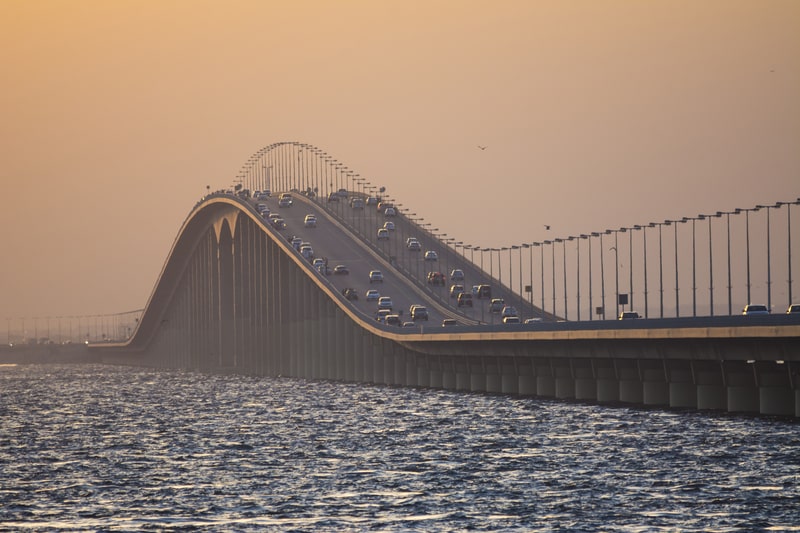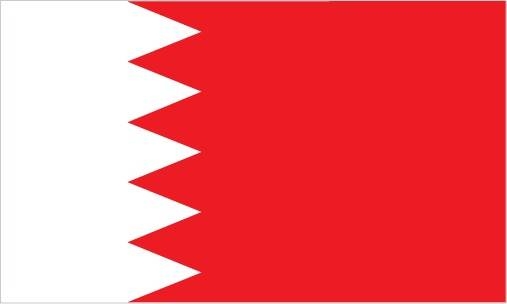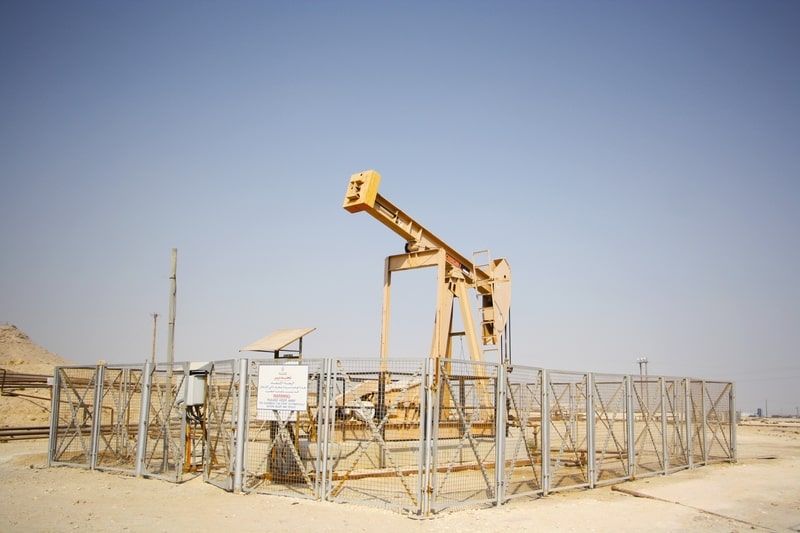Last updated on June 23rd, 2022
Bahrain, officially the Kingdom of Bahrain, is an island country in western Asia. The island country is situated east of Saudi Arabia and north of Qatar. Regardless of the fact that the country is located in one of the world’s chief oil producing regions, Bahrain itself has only small stores of petroleum. Oil refining and international banking are amongst its main economic drivers. The country’s population is 1,526,929 and its official currency is Bahraini Dinar. Manama is its capital and largest city. With these facts about Bahrain, let us learn about its geography, history, people, economy and more.
Geography and Environment
1. Name Origin
Bahrain comes from the Arabic word “al-Bahrayn”. The root word “Bahr” means “sea” and Bahrayn is its dual form. Therefore, the literal translation is “the two seas” which refer to the waters surrounding the country.
2. A Small Archipelago
People mistake Bahrain for an island nation in the Persian Gulf but it is an archipelago with 33 islands, the largest of which has 83% of the country’s total land mass. Reclamation has created many more artificial islands over the years.
Bahrain on map
3. Size Comparison
It is the third smallest country in Asia with an area that is just slightly bigger than Singapore and the Maldives. It is also the smallest of all the sovereign states in the Middle East.
4. Energy Consumption
According to a 2014 study by the World Bank, Bahrain is third in the world in terms of electric power consumption per capita with only Iceland and Norway posting higher numbers.

5. King Fahd Causeway
The 25 km bridge links Bahrain to Saudi Arabia through the Persian Gulf. During the imposition of the driving ban in Saudi Arabia, women could drive to the bridge from Bahrain but could not legally exit at the other end.
6. Highest Point
The tallest peak in Bahrain is only 134 meters above sea level. It is called Jabal ad Dukhan which translates to “mountain of smoke”. The name comes from the haze that envelopes the area on humid days.
7. Land Distribution
Only 2.82% of Bahrain’s total land area is suitable for agriculture while 92% is desert where droughts and dust storms are regular occurrences.
8. Freshwater
Bahrain has no rivers, lakes, or streams. It has the lowest supply of freshwater in the world. The country gets limited groundwater from the Dammam aquifer.

9. Desalination
Bahrain turned to desalination of seawater to improve supply. However, the energy-intensive process pushes up the cost of water. It also harms the environment since excess salt goes back to the sea, increasing salinity.
10. Waste Conservation
Dwindling water supply, oil pollution, and climate change are all threatening stability in the country. In 2018, Bahrain applied for assistance from the Green Climate Fund for its water conservation efforts.
History
11. Ancient Trading Center
During the Bronze Age around 3000 BCE, Bahrain was known as a trading center called Dilmun. It linked Mesopotamia with the Indus Valley.
12. A Succession of Rulers
Due to its strategic location, many sought to conquer this land and control the trade routes. These included the Assyrians and Babylonians. It was also annexed by the First Persian Empire.

13. Pearl Trading
The ancient Greeks called the land Tylos, then known as the center of pearl trading. Alexander the Great’s commanders have visited the island as he wanted to turn it into a Greek colony.
14. Nestorian Christianity
In the 5th century, Bahrain was the center for Nestorian Christians. However, their doctrines were slightly different from mainstream Christianity so they were seen as heretics by the Byzantine Empire.
15. Conversion to Islam
According to traditional accounts, the prophet Muhammad (pbuh) sent an envoy to Bahrain in AD 628. The local ruler responded positively to the mission and converted the entire area to Islam.

16. Portuguese Colony
The Portuguese ruled Bahrain for 80 years from 1521 to 1602. At the height of its power, Portugal seized large portions of East Africa and the Middle East for natural resources. They left after being defeated by Persian forces.
17. British Colony
In the 1800s, Bahrain was under threat from several powers that wanted to control it. Its leaders signed agreements with the British to seal its protectorate status.
18. Independence
In 1969, the British and Iranian governments asked the UN to resolve their dispute over Bahrain. The UN held a referendum and the people overwhelmingly voted for self-governance. Bahrain declared independence on August 15, 1971.
19. Major Non-NATO Ally
In 2001, Bahrain assisted in military action against the Taliban through the deployment of a frigate for rescue and humanitarian operations. US president George W. Bush designated the country as a major non-NATO ally that same year.
20. Arab Spring
The regional uprising made its way to Bahrain in 2011. The Shia majority demanded greater democracy and an end to discrimination. This led to a state of emergency and a crackdown on the opposition.
Government and Society

21. Bahrain Flag Symbolisms
Red is a traditional color among Persian Gulf countries. There is a narrow white serrated band with 5 points on the left side. The points represent the 5 pillars of Islam.
22. Government Structure
Bahrain is a constitutional monarchy headed by the king who appoints a prime minister, a council of ministers, and a 40-member consultative council. The 40-member chamber of deputies are elected by adult citizens.
23. Legal System
Bahrain’s legal system was influenced by English common law and Islamic law. There are separate courts for Sunni and Shi’i sects with the High Civil Appeals Court being the highest court in the land.
24. Security
Military enlistment is voluntary with males accepted as young as 15. Bahrain’s armed forces is small compared to the other countries in the gulf but large considering its population. The US Navy’s Fifth Fleet is stationed in Bahrain.
25. Health and Welfare
Health care is free in Bahrain. There is also a strong social security package for citizens including unemployment benefits, pensions, sick pay, workers compensation, and maternity allowance payments.

26. Culture
Bahrain has an ethnically diverse population because of its location and foreign workforce. Although it maintains Islamic values, it is less conservative compared to its neighbours.
27. Clothing
Most people wear Western-style clothes, although the political elite can often be seen wearing the traditional full-length tunic and white head cloth. Women are less restricted although those in rural areas continue to wear the hijab.

28. Food and Drinks
Bahraini cuisine is heavy on seafood with shrimp and fish often served with rice. They also love shawarma which is a wrap with sliced vegetables and spit-roasted meat. Coffee is always offered to guests, often with saffron or cardamom flavouring.
29. Sports and Recreation
Like many Gulf nations, football is the most popular sport in Bahrain. Locals are also keen on horse racing and camel racing. The elites practice falconry and gazelle hunting.
30. Media
Most newspapers are privately owned and published in Arabic. They are not censored while they refrain from criticizing the ruling family. The same is true for television and radio stations.
Demography and Economy
31. Immigrants Population
Bahrain is ranked 154th in the world in terms of population. Roughly 45% of Bahrain’s 1.5 million people is made up of immigrants.
32. Income Tax
Bahrain has the lowest income tax in the world at zero percent. People do not have to pay tax regardless of their earnings. In 2019, value-added tax was implemented on most goods and services.
33. Citizenship
Citizenship is acquired by descent. One’s father must be a Bahrain citizen. Dual citizenship is not permitted. Naturalization requires 25 years of residency. It is shortened to 15 years for Arab nationals.
34. Right to Vote
Bahrain provides universal suffrage for its citizens. Everyone at 20 years of age or older has the right to vote. It is among the few Middle Eastern countries where women can vote and hold office.

35. Oil Discovery
In 1932, the first oil deposits were discovered within the Arabian Gulf in Bahrain. The operations were run by BAPCO or the Bahrain Petroleum Company.
36. Dominant Industries
Oil comprises 85% of Bahrain’s budget revenues. Other major economic activities revolve around aluminium, finance, and construction. The government is pushing for diversification due to declining oil reserves.
37. Budget Deficits
Lower world energy prices have resulted in significant budget deficits for Bahrain with 10% posted in 2017. Its fiscal woes led the government to lift subsidies on gasoline, kerosene, diesel, and meat.
38. Agriculture and Fishing
Bahrain imports most of its food but it does produce some tomatoes, dates, mangoes, bananas, citrus fruits, alfalfa, and pomegranates. Fishing is difficult due to oil spills that have polluted its waters.

39. Median Internet Speed
According to Speedtest.net, Bahrain ranks 37th in the world for mobile download speed at 46.99 Mbps as of December 2021. It is 70th for fixed broadband speed at 47.09 Mbps.
40. Compulsory Education
Public education is free and mandatory for all children from age 6 to 14. Bahrain has the highest female literacy in the entire Persian Gulf.
. . . continue reading on the next page
